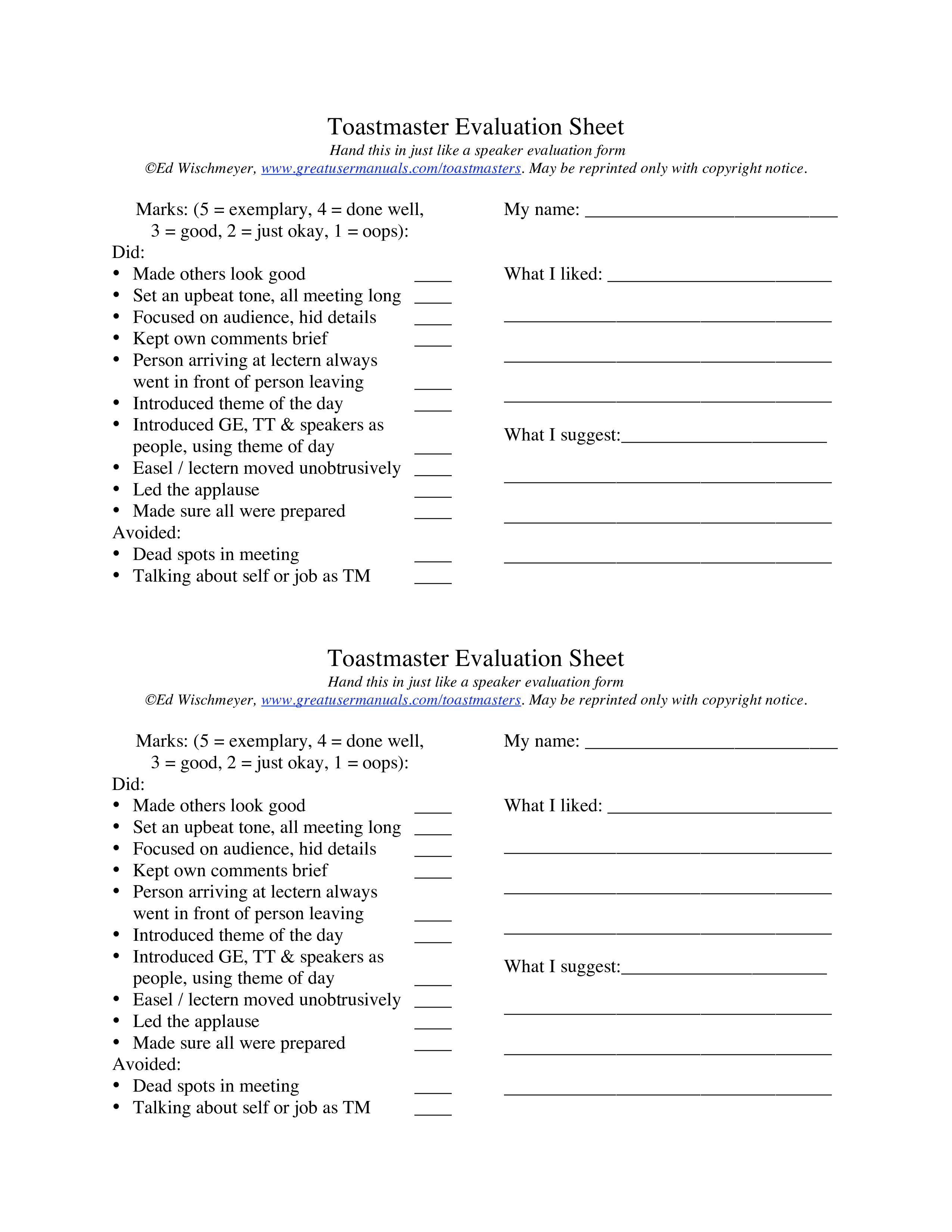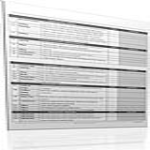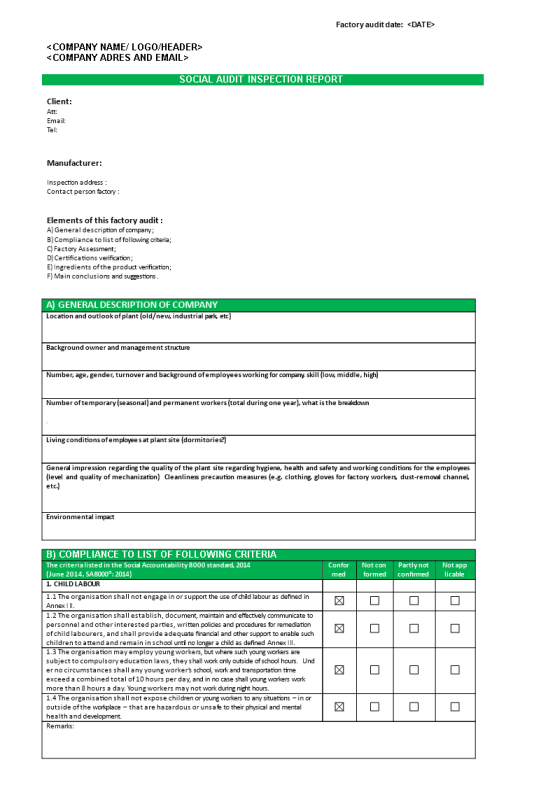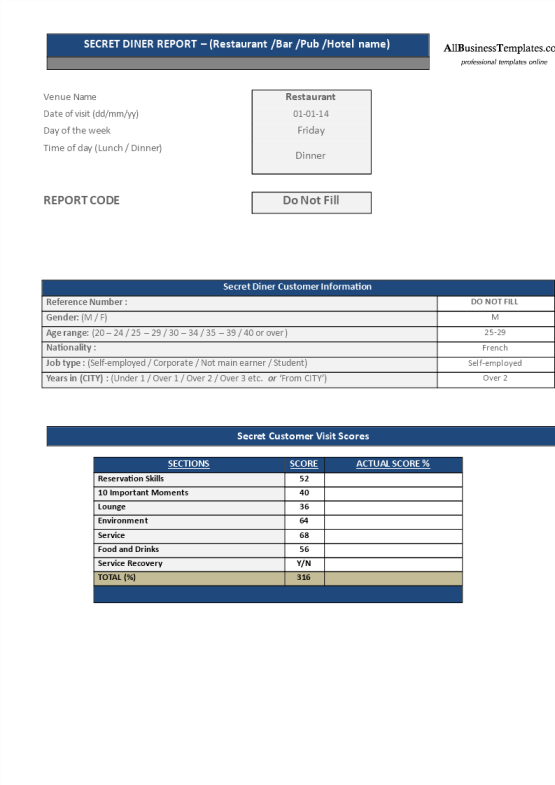Toastmaster Evaluation
Sponsored Link免费模板 保存,填空,打印,三步搞定!

Download Toastmaster Evaluation
Adobe PDF (.pdf)- 本文档已通过专业认证
- 100%可定制
- 这是一个数字下载 (43.48 kB)
- 语: English
Sponsored Link
Are you looking for a Toastmasters evaluation form template? What should you include in a Toastmasters evaluation? This template is designed to help you assess the performance of an individual in your Toastmasters club. It's the perfect tool for providing constructive feedback and helping your members grow. Get this template now and start using it immediately.
A Toastmasters Evaluation Form is a structured document or tool used by Toastmasters club members to provide feedback and assessments on a speaker's presentation or speech during a Toastmasters meeting. These forms are designed to ensure that evaluations are comprehensive, constructive, and aligned with Toastmasters International's evaluation guidelines. The primary purpose of a Toastmaster Evaluation Form is to help speakers improve their public speaking skills by providing specific feedback on their performance.
Here are the typical elements you might find on a Toastmaster Evaluation Form:
- Speaker's Name: The name of the speaker being evaluated.
- Evaluator's Name: The name of the Toastmasters club member providing the evaluation.
- Date: The date of the Toastmasters meeting.
- Project or Speech Title: The title or project number/name of the speech being evaluated. In Toastmasters, speeches are often part of a specific educational program or manual.
- Objectives: A section that outlines the specific objectives or goals of the speech project. These objectives are typically provided in the Toastmasters manual for the respective project.
- Evaluation Criteria: This section lists the evaluation criteria used by Toastmasters, which may include aspects like organization, speech content, vocal variety, body language, gestures, and overall effectiveness. The evaluator rates the speaker's performance on each criterion.
- Strengths: The evaluator highlights the speaker's strengths and positive aspects of the speech. This can include specific examples of effective communication techniques.
- Areas for Improvement: The evaluator points out areas where the speaker can improve. This is often accompanied by constructive suggestions and examples to help the speaker understand how to enhance their skills.
- Recommendations: The evaluator offers specific recommendations for the speaker to work on in future speeches. These recommendations are intended to guide the speaker's development.
- Comments: There is typically space for additional comments or feedback that may not fit within the predefined sections.
- Overall Evaluation: The evaluator provides an overall assessment of the speech's effectiveness and its alignment with the objectives of the project.
- Time Management: Some Toastmaster Evaluation Forms include a section to evaluate the speaker's use of time, ensuring that they adhere to the prescribed time limits for their speech.
Toastmaster Evaluation Forms are a valuable tool for both the speaker and the evaluator. They provide a structured framework for providing feedback, which helps speakers identify their strengths and areas for improvement. The constructive feedback given through these forms is a key component of Toastmasters' approach to helping members develop their public speaking and leadership skills.
Those individuals, who make the biggest impacts, have, what we call, a "high-performance mindset” and are often using professionally designed templates to achieve their goals faster!
Try out our online Free and Premium Professional templates, forms, and contracts today.
Save, fill in the blanks, print …and done!
DISCLAIMER
Nothing on this site shall be considered legal advice and no attorney-client relationship is established.
发表评论。 如果您有任何问题或意见,请随时在下面发布
Sponsored Link




